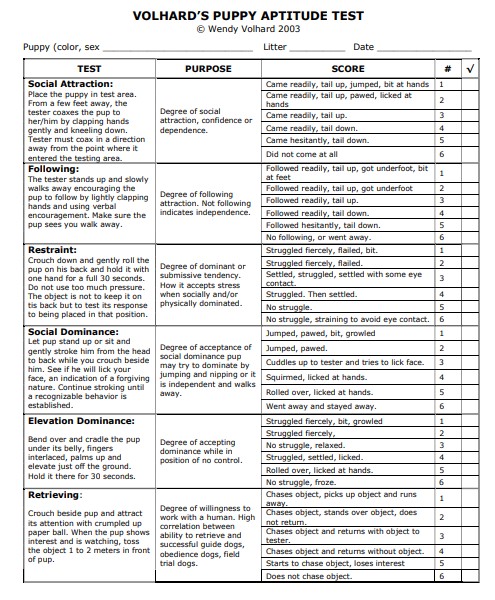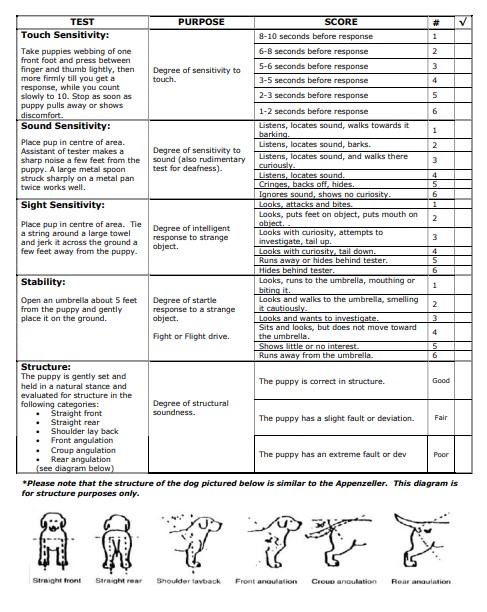Puppies born June 28, 2025!
All puppies are in their new homes! Send me a message if you are interested in the next litter!
Adam & Luna had a litter of gorgeous black puppies in 2025!
This is a show-stopper litter of gorgeous poodles with excellent temperaments. 2 puppies will be entering show homes!
Why we picked Adam: Adam is a stunningly handsome Poodle, with an exceptional pedigree. He had a wildly successful show career, collecting almost 800 Grand Champion points before he retired. His structure and characteristics are a perfect match for our Luna's. But! Equally importantly, Adam is a really, really nice dog! His personality is fantastic. He is gentle, friendly, non-reactive, easy-going - a total bed-snuggler, per his Mom. Since most of you will not be showing your poodle, and primarily want a stable, friendly, beautiful dog, Adam's personality was a huge selling point.
See our sections, below, about Genetic Testing and Puppy Raising / Socialization!
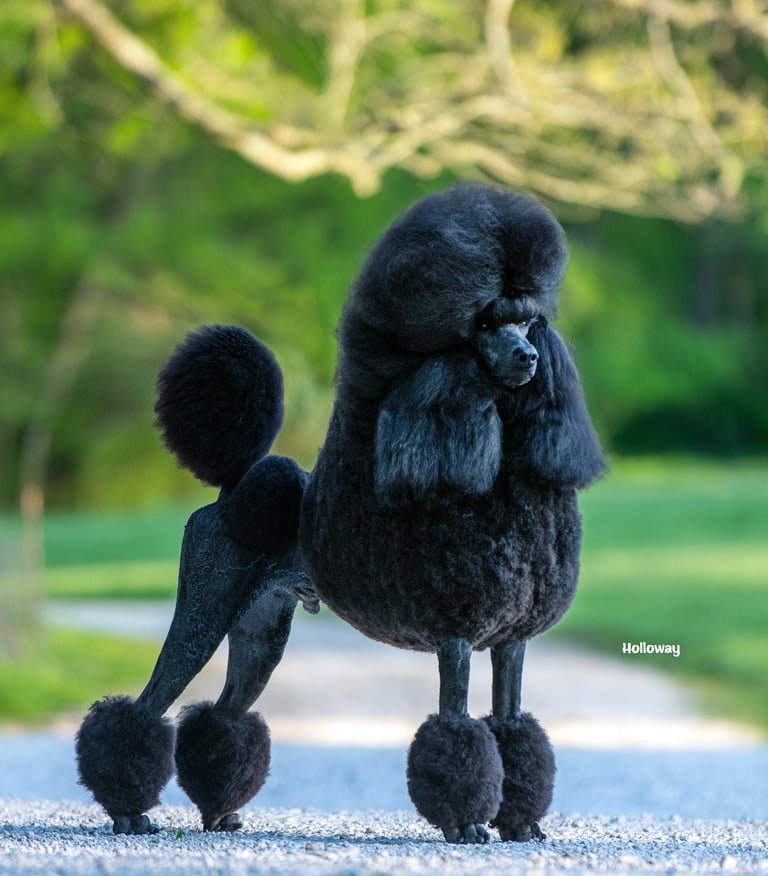

GCHG Alzia All About Adam
OFA CHIC #177596
Hips: Good CAER Eyes: Normal Cardiac: Normal
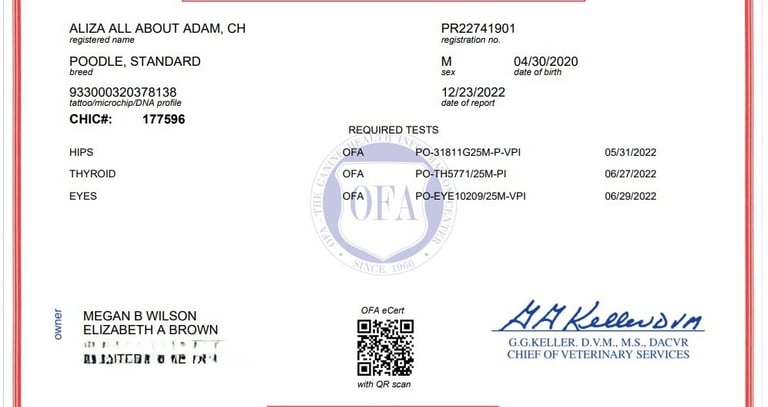

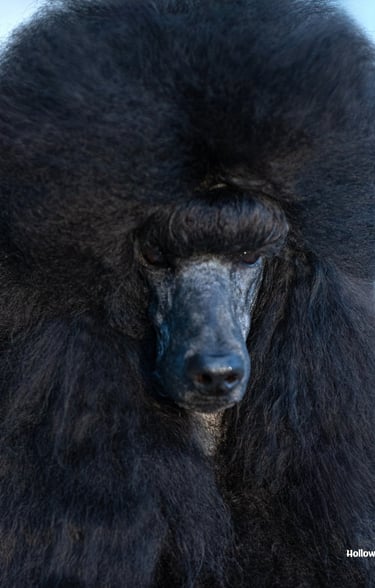

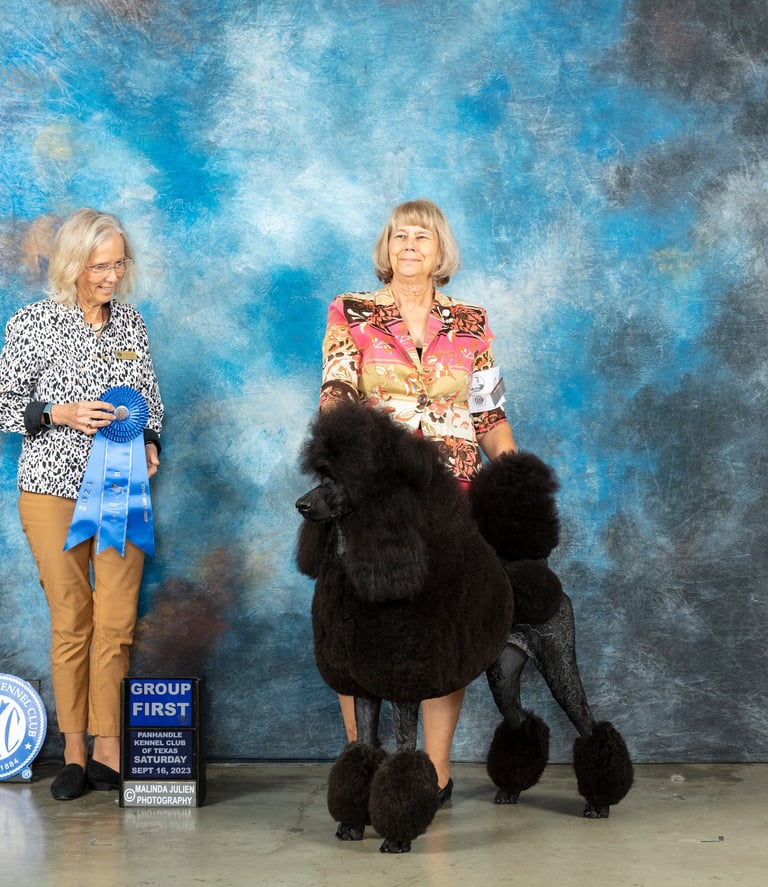

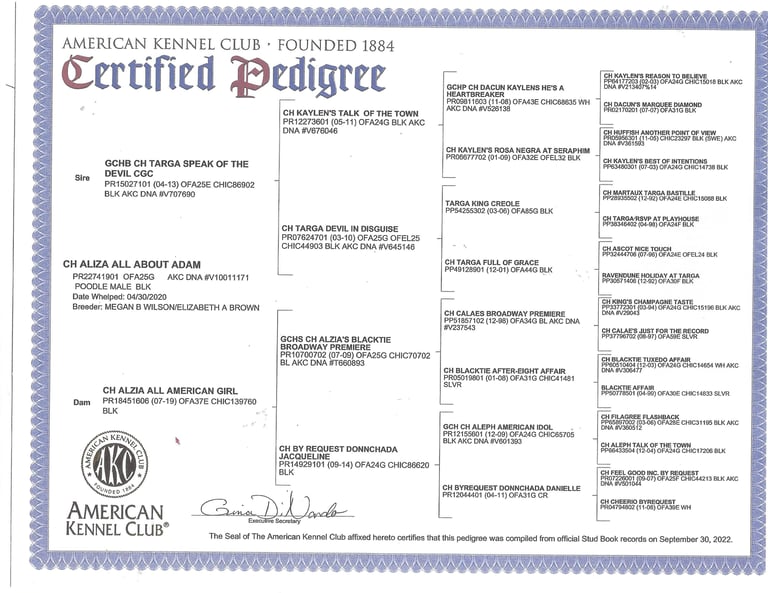

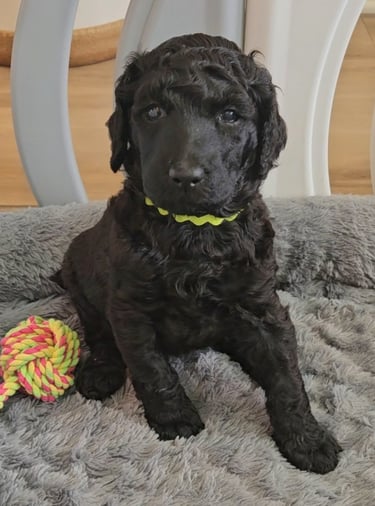

All puppies come with the following:
1 million hugs & kisses from our family :)
First shots & de-worming
Microchip with lifetime enrollment in AKC Reunite already paid
AKC registration information (spay/neuter contract for Family Dogs)
Crate training and potty training started (most puppies are 90%+ by 8 wks!)
Poodles live up to 15 years - if at any time you cannot keep your Poodle, we will take him/her back with no questions asked!

Puppy pricing for this litter:
Companion Puppies: $3,000 +Texas sales tax
Show Puppies: $3,500 +Texas sales tax
Reservation deposit: $500 (applied to purchase)
Email me, and I will send you a Puppy Questionnaire & copy of contract, to make sure you get the perfect Poodle for your family! ❤️
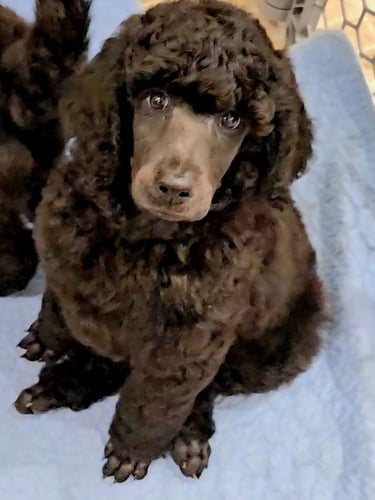

Puppy Waitlist
1: Reserved (Owner pick - show girl)
2: Reserved - Beth (show girl)
3: Reserved - Bella (girl)
4: Reserved - Mary (girl or boy)
5: Reserved - Lorelai (girl)
6: Reserved - Suraleah (boy)
7: Reserved - Brandee (boy)
8: Reserved - Cathy (girl)
9: Reserved - Farrah (boy)
10: Reserved - Laurie (girl)
Puppy Gallery
Luna's litter was born on June 28 and are already winning my heart!
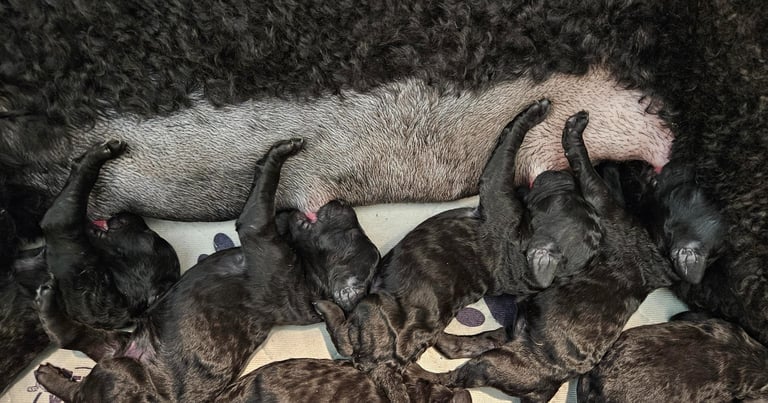

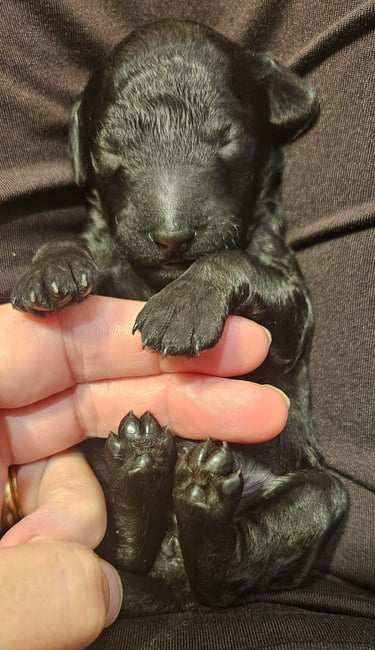


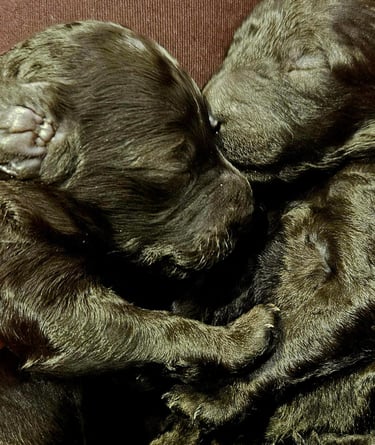

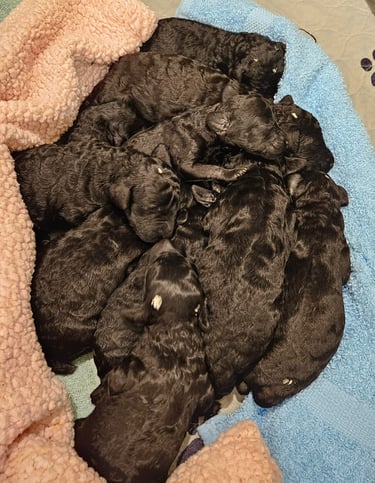

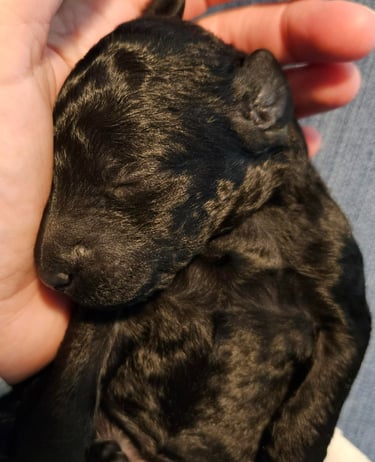




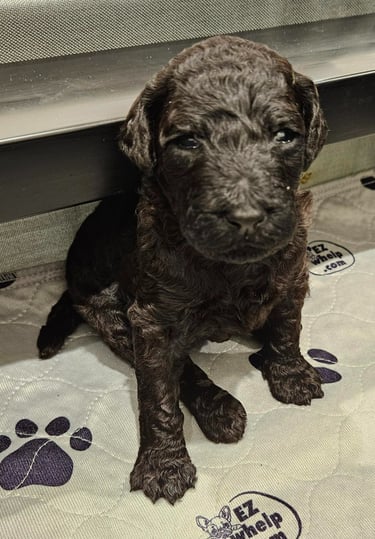



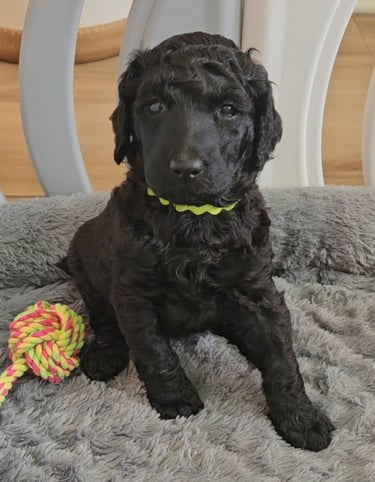

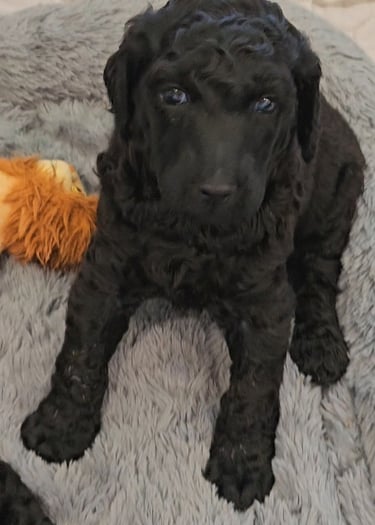

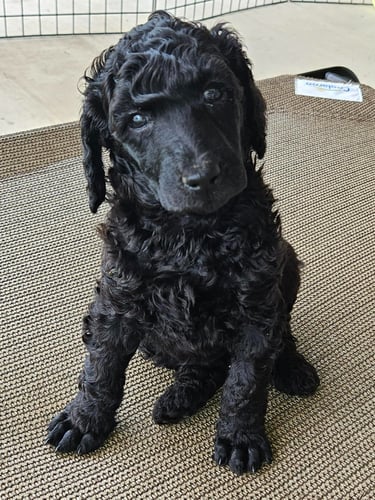

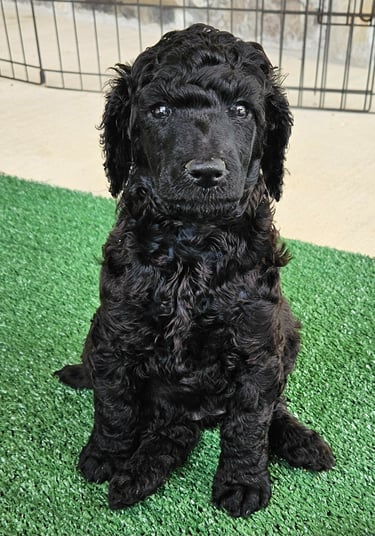

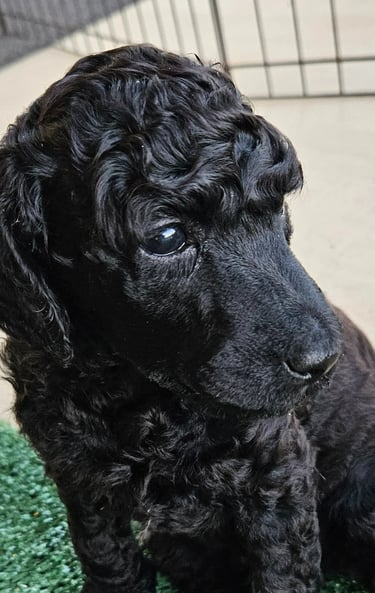

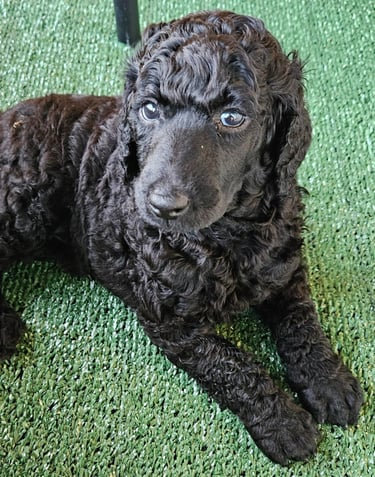

Week 5



Weeks 6 & 7


Genetic Testing
Genetic testing: Overview
The genetic testing that has emerged in the past 20 years has greatly improved the health of all dogs bred by reputable breeders, and it has almost eliminated certain diseases like hip dysplasia. Genetic testing is recommended for ALL breeders of ALL dog breeds. The testing varies depending on the breed and the diseases that have been common with those breeds in the past. (This is one reason that getting a dog from a rescue setting can be problematic.)
What testing is recommended for Standard Poodles?
Standard Poodles have been a healthy, hardy breed over the decades, which is great. They do not have a lot of genetically-linked health problems, compared to most other breeds. The genetic testing recommended by the AKC and PCA (Poodle Club of America) includes:
1: Hip x-ray (testing for genetic hip dysplasia)
2: Eye exam (testing for genetic cataracts)
3: One of the 3 "elective" tests: Thyroid, or Cardiac Exam, or Sebaceous Adenitis biopsy (skin condition)
Luna has had the 2 required tests, an advanced cardiac exam, and has had an additional series of genetic tests for conditions like bleeding disorders, drug resistance, and neonatal encephalopathy that are not required. All of her tests have been normal/negative.
When we select a stud for her, we will confirm that he has had normal testing as well, and it will be on our website (see Adam's information above!).
Clearly, we cannot test for every single medical problem a dog might develop during his/her life, but we CAN test for the serious, genetically-linked conditions, which is an important part of responsible breeding.
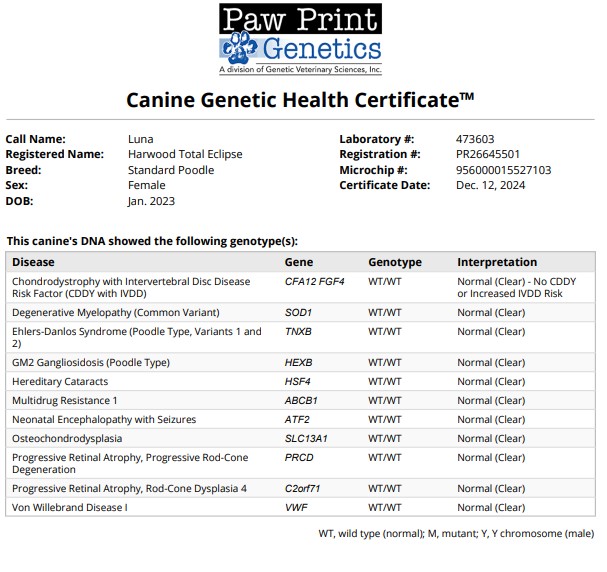

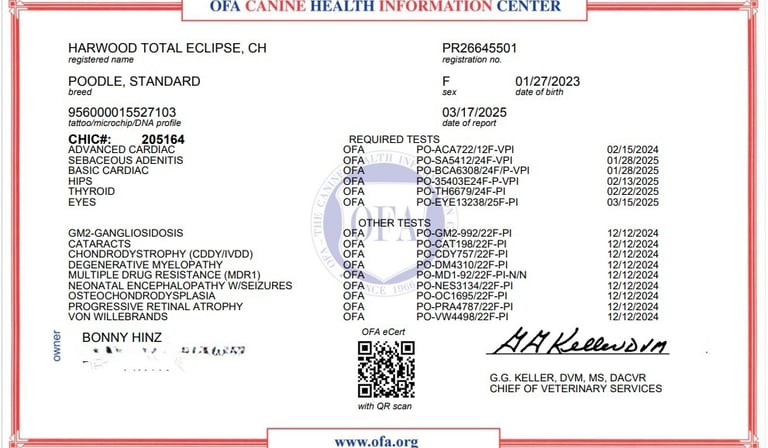

Show dogs & Family dogs
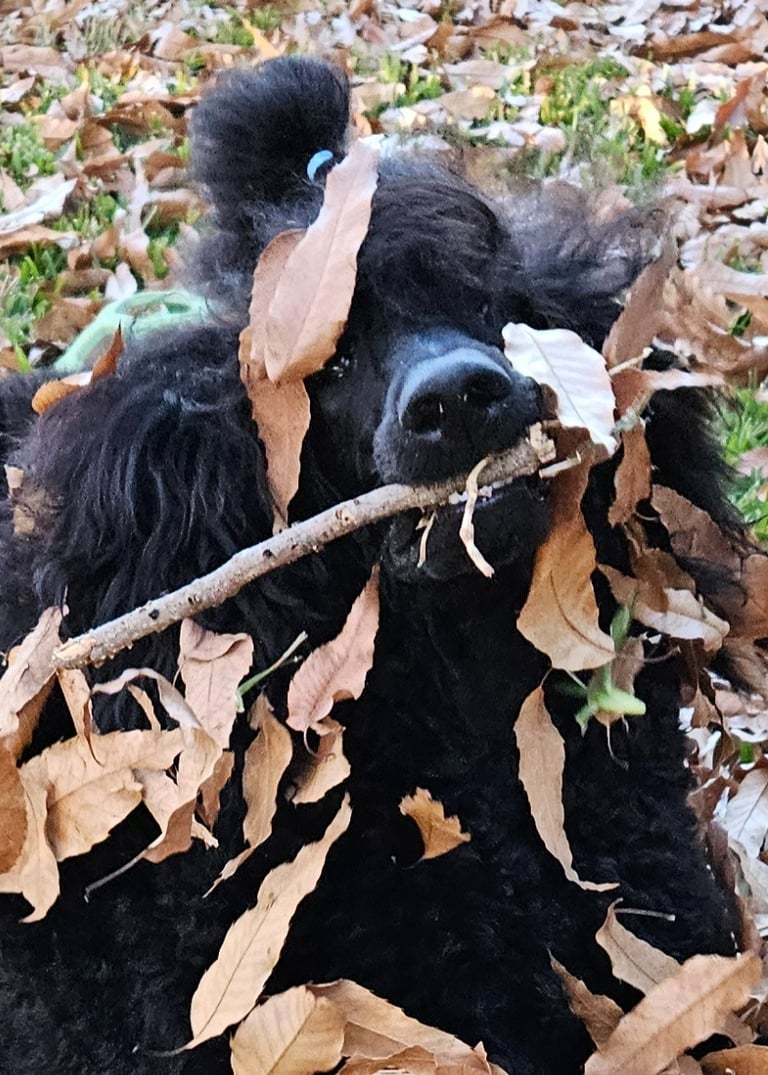

Show dogs
Luna is a “show dog,” and she will only be bred to extremely handsome show studs with stellar pedigrees. My intent is to keep a puppy from some of the litters (or place them into guardian homes) for showing purposes. However, there likely will be many "show" puppies from each litter, and I am very happy to talk to anyone who would like a puppy to show!
Family dogs - the best kind!
Luna is also a family dog! While these breedings will produce absolutely gorgeous, show-stopper puppies, the vast majority of owners really just want a fantastic family dog. We are in 100% agreement with you – and because of that, I am also carefully selecting studs who are not only handsome boys with great pedigrees, but are also extremely friendly, good-natured, non-aggressive guys.
We will be raising our puppies in our house, and exposing them to all sorts of early-puppy-development situations, to be sure they have an excellent start to their lives as your new pack members!
Puppy Socialization & Testing
From birth to Welcome Home day, our puppies will be inside our house, and outside in our back yard, and interacting with us multiple times a day. We will be exposing them to all sorts of sounds, smells, experiences, sensations.
We will “test” each puppy at 7 weeks of age using the Volhard Puppy Aptitude Test (PAT), which will give us a good indicator of general puppy temperaments. This will help you pick a puppy that has the best chance of being the dog you’re hoping for.
Socialization after 8 wks of age:
After you take your 8-week-old puppy home, there are several months (most people say about 1 year) of additional work and training that you will have to do to make your dog perfect.
Standard Poodles are big dogs, and they grow rapidly during the first year, getting to their final size by about age 1. Then, their brains (& muscles) continue to mature and develop until about age 2.
When you take your puppy home, it is really important that you do a LOT of socializing and training starting literally on Day 1. There are many lists online of “Puppy Socialization Activities” – print a couple out, and make an effort to do all of them.
For Luna, who was going to be entering the Show World at age 6 months, we had to get her used to loud noises, shouting kids, dogs barking, horns and bells, people in hats, people in wheelchairs, people touching her, carts rolling by, etc. In dog shows, dogs have to be friendly and confident, and able to keep their tails up all day long. So, starting the week we brought her home, we went on long walks all around the neighborhood. We sat at parks and watched little kids playing soccer. (This was very scary for her at first, and she wasn’t too keen on it – but after about 2 weeks, she was completely used to it and it did not faze her.) I took her to Lowe’s 2-3 times a week and walked her around on a leash. We stopped at every person who was willing to pat her, and got her used to lots of touching.
A trick I heard about that really helped: I carried dog treats with me everywhere, and I would give a treat to a stranger, so he/she could then give it to Luna. Luna loved that, and quickly associated greeting strangers with getting a treat and a pat on the head.
Crate-training:
We crate-trained all of our poodles starting at 8 weeks, and did firm potty training. The first few weeks, the puppies would go from crate right out to the yard to pee; then they can come inside for an hour or so to play, then back outside to pee / poop, then back into their crates for a few hours.
In complete transparency, all of our Poodles ultimately ended up sleeping in our bed most nights, after they were completely crate-trained, because -- heck, because they are adorable and soft and lovey!
